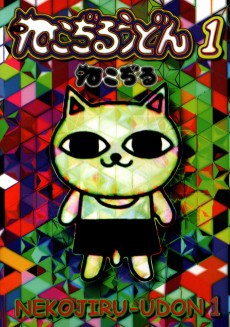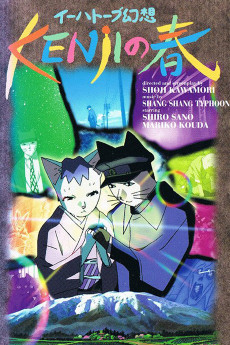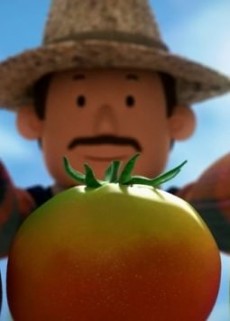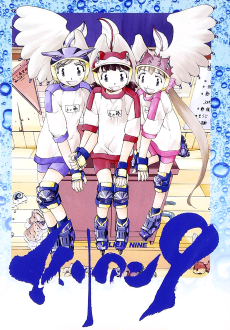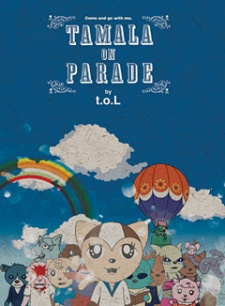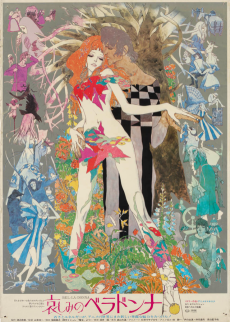NEKOJIRU-SOU
STATUS
COMPLETE
EPISODES
1
RELEASE
February 21, 2001
LENGTH
32 min
DESCRIPTION
Cat Soup is an extremely difficult film to describe, due to its awesome surrealism and almost nonexistant dialogue. It is more a work of art than an anime. There are many underlying themes, such as the transcience of man's existence, but it can be enjoyed without understanding any of them. The plot, though simple, isn't necessarily understandable without being explained. The main character, a cat named Nyatto, embarks upon a journey to save his sister's soul, which was ripped in two when Nyatto tried to save her from Death. She trails after him, brain-dead. They encounter many brilliant, mind-bending situations, beginning with a disturbing magic show.
(Source: Anime News Network)
CAST

Nyako
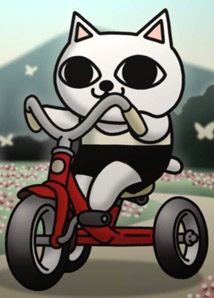
Nyatta
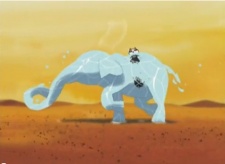
Mizu Zou
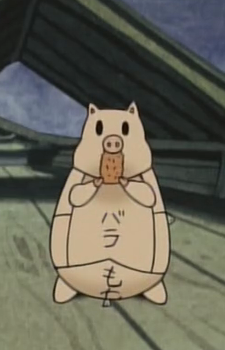
Pig
EPISODES
Dubbed
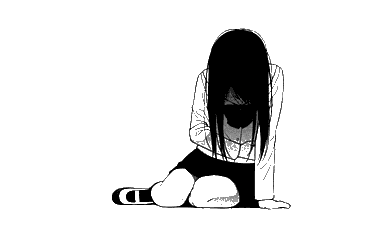
Not available on crunchyroll
RELATED TO NEKOJIRU-SOU
REVIEWS

StupidWeeaboo
81/100A weird series to get an arthouse movieContinue on AniListThis movie shocked me. The blend of surrealism and symbolism intertwine and create what is to me many different emotions. There is no dialogue, at least none with real sound behind it. The entire story is told through trippy visuals as well as visual metaphors, to the point where it leaves a lot to be interpretted. But from the emotional response that I had gotten out of it, I feel like I can put together some kind of semblance of a message and platline to follow through. On a surface level the plot is the little brother trying to find the lost soul of his sister, but I feel that through the whimsical sound effects and equally trippy visuals that there is something more to that surface plot. Although this little OVA could just be an art experiment with the director fucking around and having fun, he still manages to evoke an emotional response.
What I feel is loss. Throughout this whole short the brother was trying to prop up his little sister, trying to salvage what was left behind when her 'soul' was taken. To me, it seems like she has died or is in a vegetative state and the little brother refuses to accept that. So he salvages what he can of her 'soul' and strives to 'complete' his sister and bring her back to life. Of course, assuming that she is dead, this is impossible and as such the little brother is not able to get back the rest of his sister's soul. The entire journey itself, I think, is a representation of not only the perspective of the brother but also the journey that he has taken in terms of dealing with the loss of his sister. Through many hardships and many tribulations he finally reaches the climax of the adventure to then be at the whim of the 'time lord'-type character shown initially in the circus. That character, to me, is the embodiment of life itself and the actions of the character display an image of selfishness. The scene specifically was where he stops, accelerates and reverses time just to obtain his food. I feel like this can be attributed to how life is, not caring for your small problems and instead life is driven by whatever the hell it wants. From this, the little brother is shown with his family all seemingly normal. But one by one they disappear and I think at this point the little brother has given up on life and everything meaningful to him has disappeared. Thus concludes the show.
That may be a really clumsy interpretation of the imagery and sound design presented in a seemingly childish veil, but nonetheless this little short presents many stimulations and can be interpretted in many ways and that's what I think is masterful about this particular media. Though I might be looking into it too much, all aspects of the short help in the conveyance of various emotions and I respect what the short has done especially because of how much it deviates from the alternate black humour and dark version of the show that was more comedy focussed. 8/10 would watch again.
TheRealKyuubey
100/100A surrealist masterpiece.Continue on AniListIt’s the best of times, it’s the worst of times. It’s a tale of two kitties, and i’m not talking about that abysmal Garfield sequel. Nyako and Nyatta are two sibling kittens living in a quaint little house with their parents, a doting homemaker mommy cat and a lazy, slovenly daddy cat. One day, while the older sister Nyako is fatally ill, her little brother Nyatta accidentily drowns while playing in the bathtub. Death doesn’t come for him, however, as a Japanese grim reaper comes for his sister, who passed moments before him. Taking advantage of this unique opportunity, Nyatta pursues the two, finds them under a series of street lamps, and attempts to wrestle his older sister’s soul away from the deity. Their struggle unfortunately results in her soul being torn in half, with Nyatta and the reaper each getting away with an incomplete soul. Nyatta is revived by his father, at which point he returns the soul he recovered to the body it once inhabited.
His sister comes back to life, but is she truly alive? With only half of her soul intact, she may have resumed breathing, but there’s no light in her eyes, and she’s basically been left in a sort of waking coma. She can eat and drink for herself, providing that you put food and water in her mouth, but she shows no sign of independent thought or movement. Not satisfied with this half-brained husk of a sibling. Nyatta embarks on a journey to bring her back to the way she was. He starts off by visiting a circus that allegedly specializes in creating spectacular miracles, under the hope that she can be revived there, but his hopes are dashed when the two of them are swept up in an odyssey of oddities, becoming sojourners of a strange, surreal space. They’ll battle to survive as they break through the very boundaries of reality, contending against drought, starvation, an unstable time frame, and the cruel whims of God himself, all while finding the answer to one simple, albeit haunting, question: How far would you go for the sake of your family?
If there’s one thing that stands out about JC Staff, it’s that they don’t really seem to have a distinctive style. If I were to look at Excel Saga next to Toradora, or Karin next to Kill Me Baby, or even Index next to Ookamisan, I would never guess they were animated and produced by the exact same company. The majority of their work looks nothing alike, and this is nowhere as pronounced as it is with Cat Soup. JC Staff uses a variety of styles in this project, from fluidly animated traditional style to the kind of broken, frameless style that they’ve used in other anime to give the illusion of frenetic motion to what I can only describe as stop-motion animation of rough, graphic chalk drawings. Some of those styles probably sound cheap to you, but oh no, they spared to expense on this OVA, even though they’re animating what’s basically the story of a world of anthropomorphic animals, which nobody really needs to see in fluid motion. I mean, if you’ve seen the anime this one is based on, it wasn’t exactly the most lavish production.
And these styles aren’t being used randomly, either, there’s a point to them throughout the story. We start out with traditional animation, but something amazing happens with it… Instead of keeping to a two dimensional perspective, JC Staff managed to pull off a three dimensional perspective without using a lick of CGI, employing an inventive use of shading, angles, and the occasional wide-angle lens. This style is largely on display when the cats themselves are on screen, rightfully painting their material as the “Real world” material, or as real as anthropomorphic animals can be. That’s not to say there’s no CG, as I’m pretty sure it shows up for certain shots involving water and gears, and a giant creature summoned during the carnival, but it’s used sparingly, and never as a crutch, instead appearing so that film can take advantage of it’s clash with 2D aesthetic. The broken style comes into play when actual humans are on screen, giving an other-worldly look to what should seem the most familiar to us. It’s also used on a figure that I’m going to presumptively call God, who shows up later on. Still, these people are somewhat cartoony, and to take the disparity between reality and fantasy even further, the chalky aesthetic is used in moments involving photorealistic people.
There’s barely any music, with the first track only appearing around 12 minutes in, and with the exception of the last two tracks used, none of it is really worth mentioning, as what’s left is repetitive and generic sounding. They work well in context, and provide decent background music for certain scenes, but it’s not the kind of thing you’d really want to listen to independently. There is some very real beauty to the last two tracks, however, as a certain spoiler one does sound kind of heartwarming, and the ending tune sounds like an old music box being played with by a child. The opening tune which I didn’t lump in with the others, is your typical anime walking music, but with an old timey echo and a hypnotic underlay of footsteps and everyday noises making it into the likes of something you’ll swear you’ve never heard before. Speaking of everyday noises, while there’s little to no music throughout almost half of it, the sound design is amazing, with everything from the footsteps to chirping crickets to underwater sound distortion making it sound like you’re really there with the characters. There’s almost no dialogue, save for some text balloons accompanied by some meep-meep-meeping, so lets just move on.
I wasn’t planning to write this review… It came about as a result of another idea that popped into my head, that it might be fun to write down my top ten series-based OVAs. This idea led to a second idea, which was “Hey, instead of just taking up one slot in my schedule this winter, how about I write a full review of the number one spot, and make it two?” Well, I wound up backing off of my original number one, when I realized that I’d already reviewed Wolf’s Rain, and I couldn’t talk at length about the last four episodes without giving away major spoilers. A-doy. In comes number 2 to the rescue, and Oh God, it’s Cat Soup. I was simultaneously excited and terrified of the corner I’d backed myself into, because I genuinely love this little film, but I didn’t know if there’d be enough talking points that a guy who refuses to review FLCL could successfully articulate. Upon second watch, however, I don’t think that’s going to be a problem. There’s a lot more here to unload then I thought.
First things first, if I’m going to talk about Nekojiru Sou, I need to talk briefly about the whole Nekojiru thing. Chiyomi Hashiguchi was a manga artist in the eighties and nineties who took the traditional image of the good luck cats… The things Meowth was based on? And sent them on adventures that spoke to Japanese youths at the time through a bleak, pragmatic lens that explored the cruelty of the world with a casual, childish approach. It’s basically like if Ayn Rand were to direct a story set in the Busy World of Richard Scarry. Yes, you’ve got anthropomorphic animals talking in human languages and acting like people, but they also hunt and eat each other, both friend and foe. She committed suicide at the age of 31, and while her reasoning isn’t exactly known, there’s speculation that the success and commercialization of her work, combined with the creative exhaustion of having to fill more and more work orders may have overtaxed her already troubled mind. I mean, hell, her two main characters were just about to be adopted as safety mascots when she did it. Imagine how much that would have blown things up.
Likewise, the two animated adaptations of her work were released posthumously. I haven’t read any of her original work, I’m only vaguely aware that her first comic involved a baby cat being killed and turned into soup after a botched neutering was performed to keep it quiet, but I am aware that the two releases represented different sides of her work. The series, Cat Soup Theater, or “Nekojiru Gekijou,” was based on her more common work, the Snoopy-like tales of Nyatta and Nyako. One of the most famous moments from this series involves the older girl’s friend, a pig, being brutally murdered and turned into pork cutlets by her father, who gives just as little of a shit as she does about the fact that he’s scared to die and having the only normal reaction to this deed. He’s ultimately fed to the family, as well as to his clueless little brother, all while his parents… Ahem, ‘pork,’ in the background. This clip was featured in AMV Hell 5 along with a song about how delicious pork is, because AMV Hell 5 wasn’t very good. Sorry, it’s true.
The problem with having such a horrific event take place so early in the production is that there’s really nowhere else to go from there. You can’t very well bank on the shock value of people dying when a slide throws them into a brick wall or a little Tanuki getting shot in the head by Daddy cat when you’ve already gone into such dark territory, and if I’m being perfectly honest, the series also wasn’t very good. Maybe it’s because I’m not the specific Japanese audience it was targeting at the time, and yeah, I can see things like this being more entertaining in comic form, but after such a huge bump early on, the rest of the show just felt kinda dull to me. Luckily, it wouldn’t be the only adaptation of Chiyomi Hashiguchi’s work, as we’d soon get Nekojiru Sou, which translates to Cat Soup Grass… Possibly a nod to the other side of her material that it would be representing. Yeah, some of her work was surreal and druggy enough to make Alice in Wonderland’s book look like the Disney version. The cartoon version, not the “Oh-ho-ho, look at silly Johnny Depp gasping whimsically in facepaint” version.
The first time you watch Cat Soup, named in English releases after the creator, it may feel like little more than random weirdness. Even the opening segment is easy to get lost in, as the characters say nothing, and the OVA does little to nothing to explain to the viewer what’s going on. For some people, it takes a plot synopsis online just to figure out that Nyatta drowned just long enough to save Nyako from dying of her illness, and that’s with the giant foreshadowing clue of Nyatta playing in the bath with a truck, which would sink, instead of a floaty boat. Cat Soup relies on it’s viewers to use their brains to interpret and figure out what they’re watching, spoon-feeding you so little that even the little bit of thought bubble dialogue we’re given seems out of character for it. It’s easy to write it off as a couple of kitties eating some badly dated magic mushrooms and experiencing all of the other-worldly weirdness through the lens of their drug-addled eyes, and I’m sure on some level this assumption would be accurate to the comics, but to do so would be seriously reductive of the material.
It took me multiple views to connect as many dots as I have, but Cat Soup isn’t random by any means. There are a few sequences I can’t place any significant meaning to, like a fish escaping from a horde of sword swinging samurai, but that doesn’t mean that there’s no meaning that can be found. For the most part, at least as far as I’ve observed, this thirty minute OVA is packed with complex metaphors that act as an extension of what Hasiguchi’s original point was, as it carries two very important and interwoven themes with them. The first theme is the bleak nature of existence. The circle of life isn’t always life affirming like it is in the Lion King. The world is cruel, and life itself is harsh by it’s very own nature. Everything that’s born will inevitably die, and to believe that your brief existence holds any significance to a grand plan or that you’ll leave a major impact merely by existing is a childish illusion. Life continues in a cycle, nobody can escape from it, and even those who consider themselves prey are, in some way, predatory. Even if you don’t eat living things, you still use them, and often without thanks as they die for you.
The other theme, and this may come as a surprise to anyone who can’t get past the casual cruelty of Hasiguchi’s work, is the importance of family(the same idea Coco did so horribly, GOD I hated Coco). The world is full of violence, people and animals die in massive numbers every day, history is full of people committing horrifying acts on one another, but it pays to focus your attention on those closest to you… To treasure and cherish your family and loved ones, because in the end, their lives mean the most to you, and their deaths are the ones you should go to the ends of the earth to prevent. According to Cat Soup, as is shown constantly throughout the film but most noticeably through a callback to the series’ disposal of pig characters, there’s nothing wrong with killing and taking advantage of others for the sake of your older sister, because in the end, she’s what should matter to you. It doesn’t even matter if you’re defying God… God is a fickle being who cares more about his next meal than the lives of people who are just going to be born to die anyway.
I could go on and on with a point-by-point analysis of what everything in this OVA means… Or at least I could try to overcome the futility of doing so… But in the end, you’ve got to experience it for yourself. I haven’t figured everything out yet, but I still have faith that everything in this anime means something, however small, and not a second of screen time was wasted. I could explain the water-elephant, the tall mosquito figures, the stitches on the fat dude’s head, even the ending, but… No, I probably should say something about the ending, because that’s one of the most confusing parts of the show. I’m only ever going to do this once, because I swore I’d never recommend this dude’s work to anybody, but it’s the only way to help you out without spoiling anything. After watching Cat Soup, if you’re confused about the final segment, watch the movie Dogma. I’m not saying it’s a good movie, in fact I think Kevin Smith is severely over-rated, but some parts of the movie will go a long way in explaining the end of this one.
Cat Soup is available from… Well, nobody, really. It was released on two different DVD sets by Central Park Media, one in a normal case and a limited edition in a bloodier Liquid Art case, both versions now out of print. Nekojiru’s written works have not been released stateside, nor has the series the OVA was based on, but they can be imported from Japan. If you’re looking to read more on Chiyomi Hashiguchi, you can find an essay online by Thom Bailey at http://www.hz-journal.org/n5/bailey.html.
I don’t think I’m overselling Cat Soup when I call it a surrealist masterpiece. It can be viewed from either the perspective of those looking to find meaning in it as well as by those who are just looking for some weird shit to look at, either to get stoned through or to confuse their friends with, and it works perfectly either way. I don’t entirely agree with everything it says, being that I am Christian myself, but I still find it’s representation of a depressed individual’s outlook on life to be fascinating down to it’s core. It’s beautiful to look at, rich with introspection, and somehow manages to have a solid heart behind all of it’s cruel observations. To call it a major improvement over the preceding series would be like calling the Mona Lisa a major improvement over your tween cousin’s selfies. If I can find any flaw in it, it would be that the music was a bit lacking, but it was obviously never intending to have a huge soundtrack, and the brilliant sound design more than makes up for it. I can watch it multiple times a week without getting sick of it, and you should too. I give Cat Soup a 10/10.

saulgoodman
80/100Schrödinger's cat is neither dead nor alive. It murdered him then went on an acid trip.Continue on AniListWithout sounding like a beret-donning art snob, Arthouse films, and the avant-garde in general, possess a charm usually lacking in more mainstream entertainment media. Though often at the cost of elucidated stories, story development, themes, etc, I find a mesmerizing subtlety stashed away in the works of Satoshi Kon, Studio 4C, and Masaaki Yuasa. The latter who's of the essence in this review.
In a roundtable discussion of the best anime directors, titans like Hayao Miyazaki, Isao Takahata, Mamoru Hosoda, Makoto Shinkai, Satoshi Kon and Kunihiko Ikuhara will undoubtedly be thoroughly analyzed. I'd throw in Masaaki Yuasa without a moment of hesitation. Unconventional, would be somewhat of a dry description regarding Yuasa. There's a drunken flamboyancy to Yuasa's style, with exaggerated, fluid character animation and abnormal character designs that make moe-exclusive anime fans shudder. He has somewhat of an eclectic side, as well. The Tatami Galaxy, Lu Over the Wall and Ping Pong: The Animation possess a rehabilitative, bright optimism defined by quirky humor. Then there's his other works grounded in existentialism and dark themes, such as Kaiba and Devilman Crybaby. Now, where does a particularly infamous, 30-minute OVA lie in all of this?
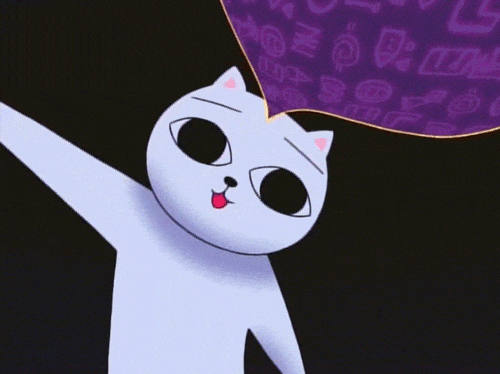 ___
#
___
#__The cat is neither dead nor alive__ Summers are the best of times. Chirping cicadas, gentle summer breezes, soft bell chimes and otherworldly adventures.
Finding her older sister Nyatta whisked away by a strange blue deity, Nyako proceeds to chase them down the streets. Well, after, popping a neighborhood house wife's air seal, resulting in her deflation, all while the other house wives continue to gossip. Finally caught up to them, Nyatto pulls her sister's arm in a amusing tug-of-war fashion with the deity and eventually winning her sister's deflated body, signaling the start of a trippy series of events.
Earnest to retrieve Nyatta's lost soul, Nyako embarks on an otherworldly journey too incomprehensive to all spell out and interpret. A circus show where a women gets comically dismembered as an act, giant animals born out of clouds, a giant, sadistic human man showing hospitality to the exhausted sisters who he attempts to cook, God turning back the gears of Time. By summarizing these supernatural events, closer to reveries than events, in a meager, single sentence, I hope to convey the lesser importance of analyzing and interpreting these events, the greater importance of Cat Soup's whimsical immersion and experience.
Certainly, there's a blotting sense of existentialism omnipresent in Cat Soup, but I believe its presence isn't intended for thematic representation and interpretation, but for the sake of simple self-representation. Cat Soup doesn't seek to pose thought-provocation, it wants the audience to take part in its silently chaotic world through the eyes of Nyako. Or rather, their own eyes. Of course, there's the Hindu deity guiding Nyatta at the start and a blatant God for religious symbolism, and other subtilties beneath all the gore, maim and odd-ball events. I'm not going to vehemently reject the idea of people interpreting the course of events, because analyzation is part of any media's experience. However, Cat Soup is as silent as its protagonists, it won't confirm or reject anyone's interpretations. It's more keen on flashing its humorously dark world in of itself, spared from consuming overarching themes. So, I suppose Cat Soup has a twisted sense of purity. A purity defined by a greater desire to represent itself, rather than themes.
 ___
#
___
#__...__ Silence is a virtue, and Cat Soup embraces it.
Cat Soup has no oral dialogue, occasionally broken by grunts and mumbles. While it does rely on verbal dialogue at times, via speech bubbles, there's a strong case of "show, don't tell", executed in a plethora of ways.
Ironically, the lack of dialogue immensely elevates the auditory experience. In the scenes devoid of obscure and explicit chaos, there's a relaxing quaintness to it owed to the sound production. Take Nyako and Nyatto's home at the start. The summer bell chiming, cicadas blaring, cluttering of dishes being washed and Nyako's soft pattering on the wooden floor exude such a mundane, homey atmosphere, unaware of the looming otherworldly adventure. Besides elevating the world-building and ghastly atmosphere, the sound production is phenomenal in just of itself. The scene of Nyatto's detached arm being sewn back is my favorite instance of the great auditory orgy, with the sharp, clear sound of the needle pricking Nyako's arm.
Background sound design aside, Yutoro Teshikai did an equally memorable job with Cat Soup's OST. Also devoid of words, the instrumental songs have a delicate beauty to them, though a bit too creepy to be inserted into a Ghibli film. The last sequence of Nyako and Nyatta crossing the Styx River showcases the height of the euphoric OST, somehow simultaneously relaxing and unnerving.
Perhaps the strongest visual appeal of Cat Soup is in its story/image-boarding, done by none other than Yuasa himself. The very opening sequence of Nyako playing with her toys in the bathtub from a low-angle shot, proceeding to jarringly and elaborately snake the camera's way throughout the house, to a close-up of a cicada corpse, a trail of ants then a bed-ridden Nyatta flamboyantly shows off the great story-boarding and cinematography, showcasing the talents of Yuasa and the animators.
 ___
#
___
#__Conclusion__ Nekojiru, the original creator of Cat Soup, had a laudable, timeless style defined by contradiction. That is, her alarmingly adorable anthropomorphic chibi characters living in a world so ripe with death and maim, to the point of comical tone. Rather than what the laughably violent, explicit situations represent on a thematic level, I believe the late mangaka wished to represent her jarring worlds in of themselves and their all-encompassing explicitness. Though director Tatsuo Satou and Masaaki Yuasa considerably differed from the source material in this short film, the value remains.
Despite being credited for scripting and story-boarding, Yuasa's DNA is omnipresent throughout Cat Soup as if he was directing this himself. The cinematography and story-boarding are eccentric and fascinating, elevating the otherworldly nature of Cat Soup. And of course, what's a Yuasa work without funky imagery? One of the final sequences flashily and erratically vomit Yuasa, with a barrage and montage of short, colorful, vivid, imaginative and bizarre scenes.
Perhaps one may believe that arthouse films and experimental works possess themes and messages too snobbish or pseudo-intellectual to reveal themselves to laymen. Or perhaps they're just devoid of themes for the sake of being distinct. Cat Soup borders somewhere between these two thoughts just as much as it borders reality and dream in its story. While interpretation is part of an experience, immersion is the focal point of the Cat Soup experience. It feels like its existentialism and other dark themes exist to guide you through the swirling world and the choice of silent and deadpan protagonists wish for one to experience this world not through their eyes, but one's own.
Come in blind, come out even blinder.
SIMILAR ANIMES YOU MAY LIKE
 OVA DramaTenshi no Tamago
OVA DramaTenshi no Tamago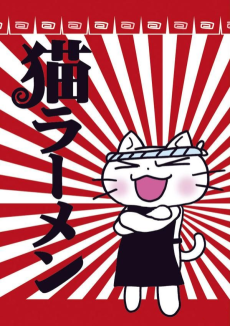 ONA ComedyNeko Ramen
ONA ComedyNeko Ramen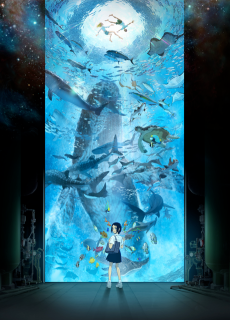 MOVIE DramaKaijuu no Kodomo
MOVIE DramaKaijuu no Kodomo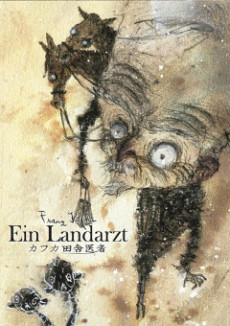 MOVIE DramaInaka Isha
MOVIE DramaInaka Isha
SCORE
- (3.55/5)
MORE INFO
Ended inFebruary 21, 2001
Main Studio J.C.STAFF
Favorited by 803 Users


